 | Isaac Newton - Celestial mechanics - 1729 - 444 pages
...that follow. LEMMA I. Quantities, and the rations of quantities, which in any finite time converge continually to equality, and before the end of that time approach nearer the one to the other than by any given difference, become ultima-til? equal. If you deny it ; fuppofe... | |
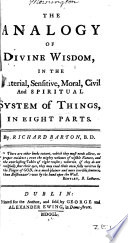 | Richard Barton - Analogy (Religion) - 1750 - 278 pages
...natural philofophy is : Quantities, and the ratio of quantities, which in any finite time converge continually to equality, and before the end of that time, approach nearer the one to the other, than by any given difference, become ultimately equal. This is plainly the fame,... | |
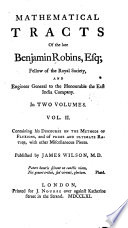 | Benjamin Robins - Calculus - 1761 - 396 pages
...lemma all ultimate difference is excluded, the confequences drawn of thefe two lines, let us fay thus. If you deny it, let them be ultimately unequal, and let their difference be D ; therefore they cannot approach to equality nearer than by the given difference D,... | |
 | William Emerson - Calculus - 1768 - 492 pages
...general Proportion is to be underftood. AXIOM. Quantities, which in any finite Time continually converge to Equality, and before the End of that Time, approach nearer to one another than by any given Difference, do at Jaft become equal. If any ihould think this not clear... | |
 | Isaac Newton - Celestial mechanics - 1803 - 344 pages
...time converge continually to equality, and before the end of that time approach nearer the one to the other than by any given difference, become ultimately equal. If you deny it, fuppofe them to be ultimately unequal, and let 1) be their ultimate difference. Therefore they cannot... | |
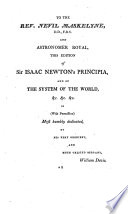 | Isaac Newton - Celestial mechanics - 1803 - 310 pages
...converge continually t& equality, and before the end of that time approach nearer the one to the otlter than by any given difference, become ultimately equal. If you deny it, fuppofe them to be ultimately unequal, and let D be their ultimate difference. Therefore they cannot... | |
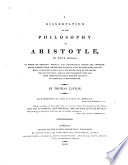 | Thomas Taylor - Philosophy, Ancient - 1812 - 622 pages
...any finite time converge continually to equality, and before that time approach nearer the one to the other than by any given difference, become ultimately equal. If you deny it ; suppose them to be unequal, and let D be their ultimate difference. Therefore they cannot approach... | |
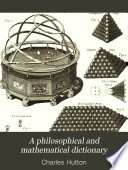 | Charles Hutton - Astronomy - 1815 - 686 pages
...ultimate ratios. — LEM. 1. Quantities, and the ratios of quantities, which in any finite time converge continually to equality, and before the end of that time approach nearer the one to the other than by any given difference, become ultimately equal. — LEM. 2 shows, that... | |
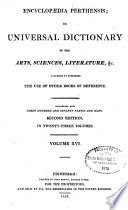 | Encyclopedias and dictionaries - 1816 - 778 pages
...any finite time converge continually to equality, and before that time approach nearer the one to the other than by any given difference, become ultimately equal. If you deny it ; fuppo4e them to be ultimately unequal, and let D be their ultimate difference. Therefore they, cannot... | |
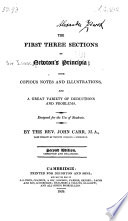 | Isaac Newton - Curves, Plane - 1826 - 208 pages
...PROPOSITIONS ARE DEMONSTRATED. LEMMA I. Quantities, and tfte ratios of quantities, which, in any finite time, tend continually to equality ; and, before the...by any given difference, become ultimately equal. JF you deny it, let them be ultimately unequal ; and let their ultimate difference be D. Therefore... | |
| |